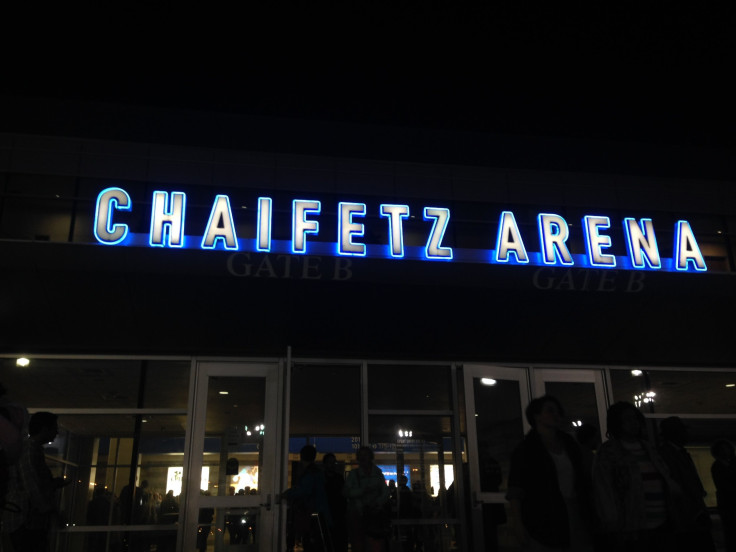Ferguson October: Cornel West Came To St. Louis 'To Go To Jail'

ST. LOUIS -- “I didn’t come here to give a speech,” said the black academic and civic activist Cornel West as he did just that in delivering the keynote address at an interfaith service Sunday at St. Louis University’s Chaifetz Arena as part of the Ferguson October weekend of action in honor of Mike Brown and Vonderrit Myers Jr., the two black teenagers who were shot and killed by white police officers in the past two months. “I came here to go to jail.”
In a wide-ranging speech, West made pleas for harmony between older civil rights activists and younger generations of black leaders while decrying the “vicious legacy of white supremacy” in America. He said black youth should “love themselves, respect themselves in such a way that we can mobilize and organize. I want to try and make sure their voices are heard. ... The larger system has been victimizing and coming at them.”
Before West took the stage, the event got raucous as those in the crowd grew frustrated at the clergy and black leaders, such as NAACP President Cornell William Brooks, who were part of the program. The spectators demanded that others not selected to speak, like St. Louis rapper Tef Poe and neighborhood activist Ashley Yates, have their say by chanting “Let Them Speak.” Poe and Yates were then allowed at the podium.
Poe said there should have been acknowledgment of gangs like the Crips and Gangster Disciples at the interfaith service because he said they offer protection for black youth than the activists that were on stage. “You don’t see the GDs, the Vice Lords, the Crips [here] and they be out there in the streets,” he said. “The brother with the suit and tie on isn’t the guy who’s protecting me.”
Part of the problem, according to West, is that blacks who have success or wealth don’t become civic-minded because they don’t face the same struggles as other African-Americans. “Our middle-class brothers and sisters have been reniggerized,” he said. West spoke out against income inequality, pointing out that 1 percent of the American population owns 42 percent of the wealth. The 40 percent of black children living in poverty “is a crime against humanity,” he said. West also railed against “the vicious Israeli occupation of Palestinian brothers and sisters.”
As the event was coming to a close, some attendees of the service said the service should have had less clergy and more youth speakers. “I thought it was powerful,” Orlando Brown, 36, of St. Louis, said. “Personally, I’m sick of the same older leaders speaking. Too much talk about the problem, not much talk about the solution. Mr. West said he was here to get locked up, but most likely he’ll be on a plane tonight.”
West didn't hop on a plane right after the speech. He joined protests at St. Louis University in the early hours of Monday.
Huge cheer as @cornelwest emerges and joins the march https://t.co/QK9lK0q4a1
- Wesley Lowery (@WesleyLowery) October 13, 2014A man from Chicago, who only wanted to be identified by his first name, Ziggy, said the service inspired him to join the protests that broke out in the Shaw neighborhood of St. Louis shortly after the event was over. “We ready to march. We ready to protest. We ready to fight,” he said.
St. Louis resident, Elena Jenkins, agreed. “This is definitely a mission that is far from over,” she said.
© Copyright IBTimes 2024. All rights reserved.






















